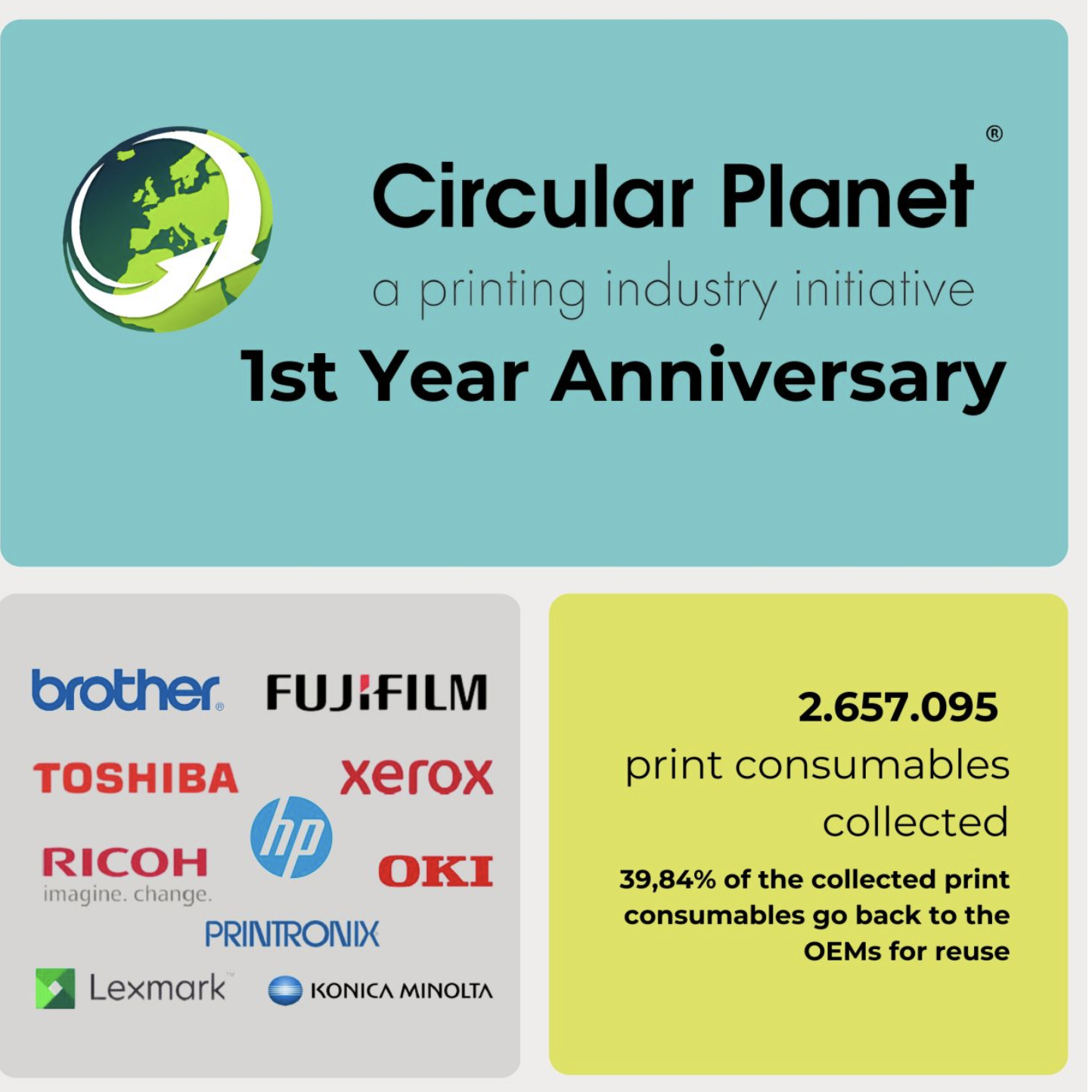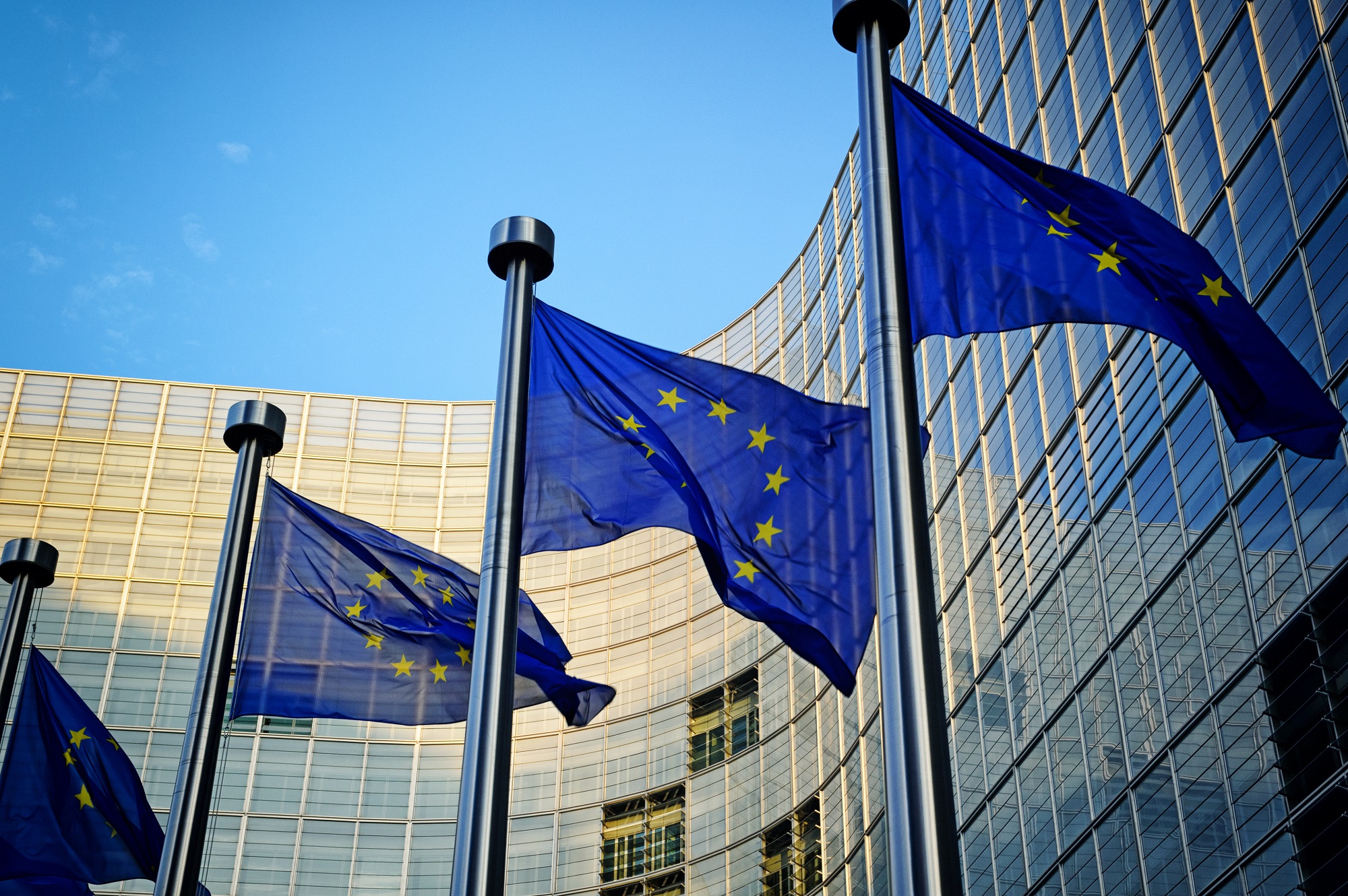Circular Planet: A Closed-Loop Farce Disguised as Sustainability?
January 22, 2025

Circular Planet, the much-celebrated OEM-led cartridge collection initiative, recently marked its first anniversary, hailing the collection of 2.6 million print consumables and boasting that nearly 40% were “sent back to OEMs for reuse.” On the surface, it seems like a sustainability success story, but upon closer inspection, this programme raises significant concerns.
What Does “Reuse” Actually Mean?
The term “reuse” is at the heart of Circular Planet’s claims, but its meaning is far from clear. Does it mean cartridges are reused as cartridges — cleaned, refilled, and returned to market? Or does it refer to the mere recycling of parts? The lack of clarity leaves room for significant greenwashing.
Moreover, sending 40% of the collected cartridges “back to OEMs” does not guarantee they are reused in any meaningful way. OEMs could just as easily dismantle, recycle, or even discard these cartridges without ever returning them to their intended purpose. Without transparency or third-party oversight, these claims of “reuse” seem hollow at best and misleading at worst.
Numbers That Don’t Add Up
Circular Planet’s collection of 2.6 million cartridges represents less than 1% of the estimated 300–400 million OEM cartridges placed on the European market annually. Of those, only around one million cartridges were supposedly “reused” — a figure that pales in comparison to the programme’s lofty sustainability rhetoric.
And what about the logistics? The idea of cartridges collected in southern Spain being sent to the Netherlands, processed at a Polish facility, and then returned to the original printer in Spain raises serious questions about economic, environmental, and social benefits. Is this truly circularity, or just a wasteful shuffle masked as sustainability?
Undermining the Reuse Sector
For over 25 years, independent remanufacturers have championed true circularity by reusing cartridges multiple times, reducing waste and lowering environmental impact. In contrast, Circular Planet centralises cartridge returns to OEMs, cutting off access to high-quality reusable cores for the independent sector.
For every cartridge collected under Circular Planet, one less cartridge is available for independent remanufacturers, who have long demonstrated their commitment to reducing the environmental footprint of print consumables. This monopolisation of the cartridge lifecycle undermines open circularity and exacerbates the supply shortage, leaving smaller players in the reuse sector struggling to survive.
A Veil for Unfair Competition?
OEM control of the cartridge collection and reuse process raises serious questions about anti-competitive practices. By monopolising access to used cartridges, OEMs can restrict independent remanufacturers from competing, stifling consumer choice and driving up costs. This lack of competition benefits no one except the OEMs themselves.
Is this a collaborative sustainability effort, or simply a cartel-like operation disguised as an environmental initiative? The absence of freely available empty cores and transparent pricing reinforces these concerns.
The Way Forward
Circular Planet’s first year has revealed what’s possible — and what’s problematic. If the programme is to genuinely contribute to a sustainable future, it must redefine its approach:
- Clarify “Reuse”: The term must unequivocally mean reuse as a cartridge, not mere recycling or disposal of parts.
- Ensure Transparency: Independent audits must verify the fate of collected cartridges, holding OEMs accountable.
- Collaborate with the Reuse Sector: Circularity must involve all stakeholders, not just a monopolistic few.
At ETIRA, we call for a balanced approach that upholds the principles of the circular economy, ensuring sustainability is not just a corporate PR exercise. The next chapter of Circular Planet must be about inclusivity and genuine environmental stewardship. Let’s hold them accountable to that standard.
Tags
CircularEconomyETIRA
Greenwashing
SustainableBusiness
ETIRA supports EU Greenwashing ban
September 22, 2023

ETIRA is pleased to announce its support for the recent agreement in principle reached by the European Parliament and Council to ban misleading advertisements and enhance consumer product information. These new rules were suggested by the EU Commission last year, and required approval from the EU Parliament and Member States. Once in force, they will represent a significant step towards protecting consumers from deceptive marketing practices and enabling them to make more informed choices when purchasing products.
What will be prohibited under the new rules?
The new EU law will outlaw the following practices:
- Generic environmental claims, such as “environmentally friendly,” “natural,” “biodegradable,” “climate neutral,” or “eco,” without credible evidence of exceptional environmental performance related to the claim.
- Commercial communications promoting goods with features that intentionally limit their durability, unless information about the feature and its effects on durability is provided.
- Claims based on emissions offsetting schemes suggest that a product has a neutral, reduced, or positive environmental impact.
- Sustainability labels that are not based on approved certification schemes or established by public authorities.
- Durability claims related to usage time or intensity under normal conditions without adequate proof.
- Encouraging consumers to replace consumables (e.g., printer ink cartridges) prematurely.
- Presenting software updates as necessary when they only enhance functionality features.
- Misleadingly labelling goods as repairable when they are not.
- Introduction of a new harmonized label for products with extended guarantees
ETIRA is especially pleased with the provision to make guarantee information more visible to consumers. Many individuals are unaware that all consumer products come with at least a two-year guarantee in the EU. Additionally, the Commission has been tasked with designing a new label for producers who voluntarily extend the guarantee period without charging consumers.
Responding to this agreement, ETIRA underscores the EU’s commitment to addressing pressing concerns surrounding the premature replacement of ink and toner cartridges, as well as the broader issue of firmware updates that can hinder cartridge use and render printers inoperative for no reason.
ETIRA President Javier Martinez hailed the achievement, stating that better guarantee visibility and a new label empower consumers to choose durable products. He praised the strong stance against early obsolescence and the clarity these rules bring to environmental claims, banning emissions offsetting. ETIRA fully embraces these changes, especially in addressing premature cartridge replacement and firmware disruptions.
The provisional agreement awaits final approval by Parliament and the Council, with an expected full EP vote in November. Thereafter, Member states will have 24 months to adopt the new rules. ETIRA eagerly anticipates these changes promoting transparency, sustainability, and consumer rights in Europe.